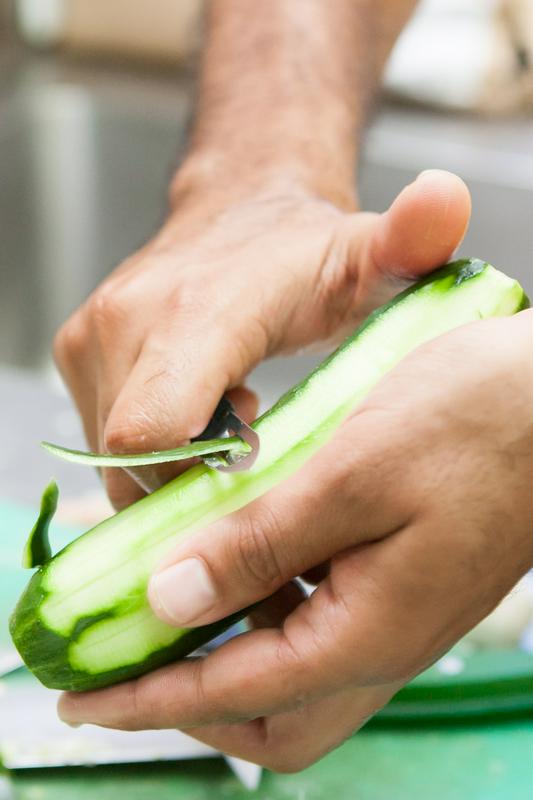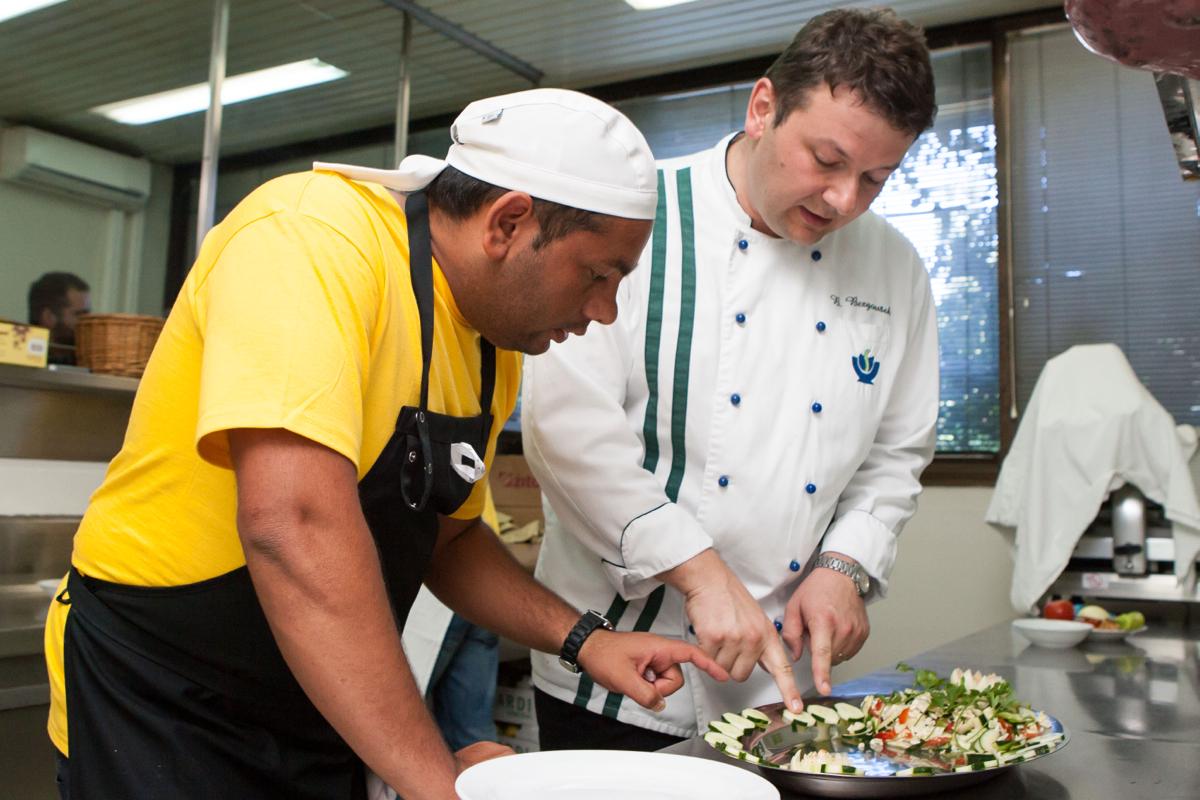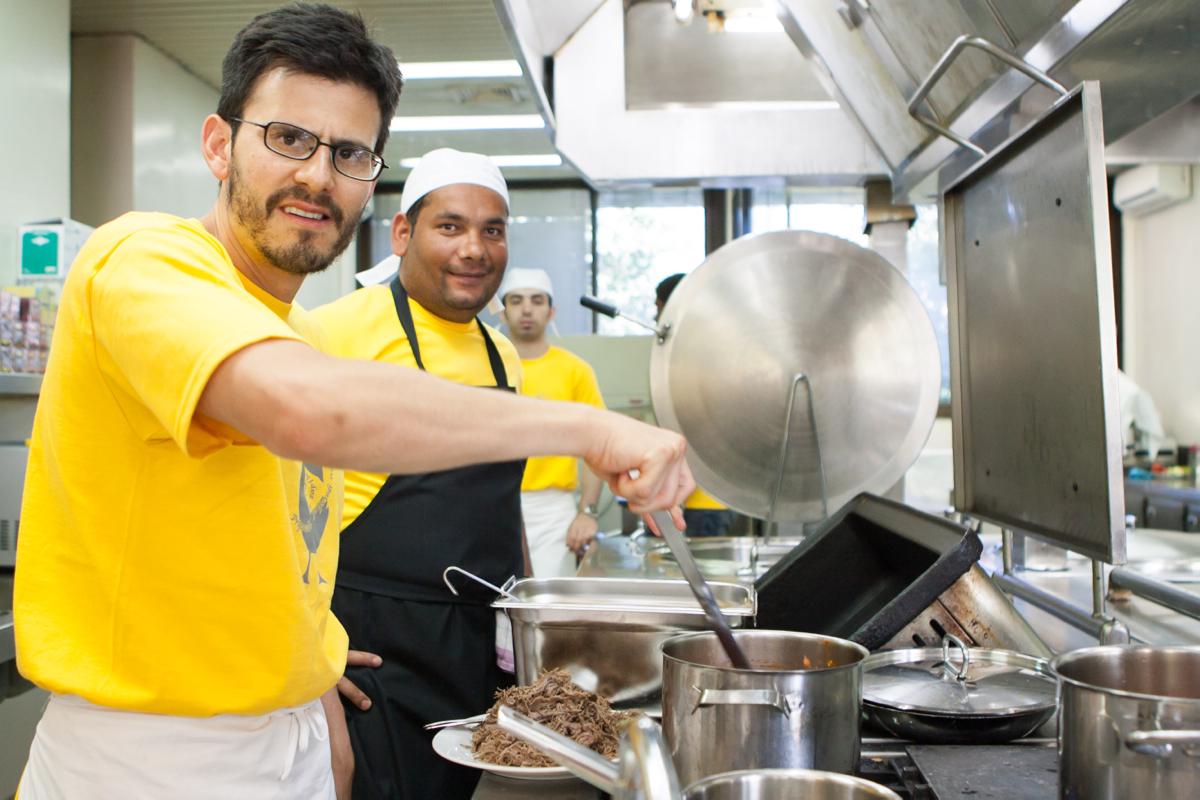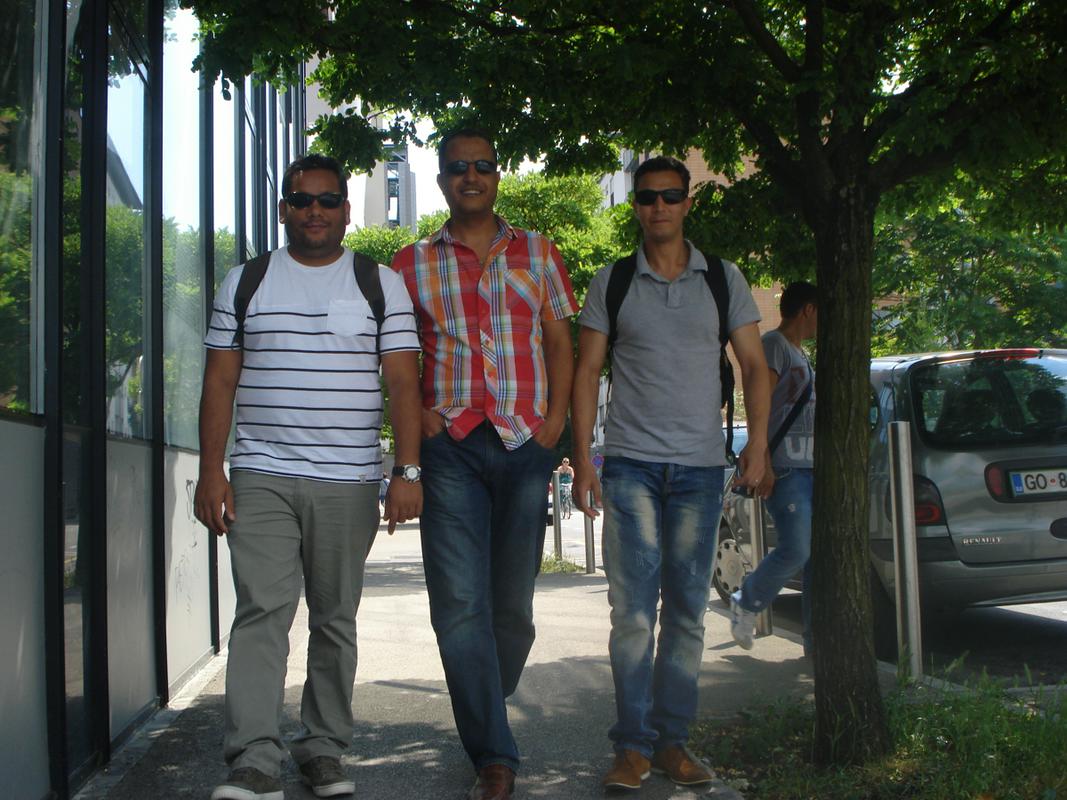

I've been sending futile applications for jobs for a year and a half, and when I finally get invited for an interview, they ask me if I can obtain a student's referral for work! I am 33 years old, and have a child – why, for goodness sake, would I want it?

When we were looking for a flat, my wife and I arranged for a viewing of a flat, but the landlady cancelled it as soon as she saw me. When asked if she cancelled the viewing because of the colour of my skin, she just nodded.
When getting into a relationship with a foreigner one is usually aware that it will be necessary to go the extra mile, says Max Zimani, who came to Slovenia from Zimbabwe more than thirty years ago.
The symbolic extra mile includes additional care for the partner in the country which is foreign to him/her and who is facing difficulties at the most simple everyday tasks. "He/she needs to go with you to the Administrative unit to put papers in order, go shopping with you, tag along while you run errands." This period brings the partners even closer, claim most of those who have experienced international love.
Yet a higher level of closeness is only a lull before a storm, when a daily battle with the economic pragmatism for survival begins. A foreigner is, without any doubt, in a less favourable position when looking for a job when compared to a native person. In the countries where unemployment rates keep growing in a time of crisis this essentially means their permanent exclusion from the labour market.
When the hope dies away
"For a certain amount of time hope still glimmers for both partners, but soon frustration starts eating away at their relationship. Due to repeated rejections when looking for a job the partners simply cannot see the light at the end of the tunnel any more,"” said Max, who came to Slovenia, or Yugoslavia, as then it still existed, as a computer science student. During three decades he has cooperated, in one way or another, with a number of migrants and has heard many of their stories; he had to face the similar obstacles himself. "When after fifteen years of working I lost my job, my wife became worried about our future. Some couples can't cope with such frustration, and can't overcome an obstacle of such magnitude".
These days the "light in the end of the tunnel" shines for eight almost exclusively 'love immigrants' to Slovenia through the project Skuhna, based on the idea of opening a restaurant where people from the countries of the »world South« would prepare dishes inspired by the cuisine of their native countries. »Everybody can cook at home, but food is also a part of the culture of a place where you come from. Food really is something special,” was Max' answer to our question why catering was chosen for development of career opportunities for immigrants.
Searching for a universal skill
Most of the participants had already tried their hand at swinging a ladle, but not professionally. But during the hot summer days preceding the September opening of the restaurant in Trubar street, Ljubljana, the eight men had a lot to learn about cooking and food preparation. At the end of the course they earned the official title of assistant cook.
For most participants the certificate is an adequate motivation for participation; at the opening only two will get a job in Skuhna, while others will cooperate occasionally, when required. “Perhaps this additional certificate will make searching for a job a bit easier ,” said Manuel from Mexico, while I was observing their training. He has already visited all the continents, but thanks to love and the family it resulted in, he settled in Slovenia.
A daddy with a student's referral
Presently Manuel is working on his ph. d. of philosophy, however he knows that it won't make him more competitive at the labour market. “Food catering is not a wrong career choice,” he states in a calm and a bit resigned voice. Manuel's career choice never revolved around food service industry, but while in Slovenia he tried his hand, after occasional translation projects, for several months in one of the chain fast food restaurants.
Just as Manuel, the other men experienced frustration caused by sitting idly at home and fruitlessly sending countless applications for jobs without even receiving an answer. It resulted in their willingness to work in the food service industry. “I've been sending futile applications for jobs for a year and a half, and when I finally get invited for an interview, they ask me if I can obtain a student's referral for work! I am 33 years old, and have a child – why, for goodness sake, would I want it?” revealed his disappointment concerning job hunting in our country Stephen from Kenya, who between sending applications managed to find only occasional manual labour jobs before starting the training for work in Skuhna.
"I had no idea it was like this here "
A year and a half ago love brought Jose from Peru to Slovenia. “I was a graphic designer, and had my own company in Lima. Then I met my wife, closed the company and came here,” he explained his travels in surprisingly good Slovenian, but with a hint of yearning. When asked why he had abandoned such a good starting-point and had chosen to come to Slovenia, his answer was simple: “I had no idea it was like this here.”
While waiting for an occasion to work Stephen said to his wife that perhaps he could offer guided tours of Ljubljana to African tourists, as he got to know the city well, but she warned him he'd better not try it, as he had no licence. “It is not my intention to take advantage of people, I simply want to do something, regardless of the income. I just can't sit at home all day. ”
Stephen had never tried his hand at catering industry (in Kenya he practiced water sports), but his enthusiasm and the serious expression on his face while preparing his specialty, chapati (fried dough, similar to tortillas) with beans, clearly proved that making food is a special thing. The others showed no less enthusiasm; by the end of the training they all tried to impress their mentor with a table laden with specialties from several countries.
Enthusiasm, or the last resort?
Most of participants enjoyed the practical part of the training much more than the theoretical held a week earlier; the first part, among other things, dealt with all the bureaucratic junk they will have to deal with as caterers. Their mentor, a professional catering teacher, had less success with inspiring the eight pupils for decoration; and some complained about the lack of some ingredients in Slovenia. That's why Raj from India regularly imports spice mixtures from India; he brought some to the training as well.
Although most of the passers-by showed appreciation for the special dishes, the trained eye of the mentor didn't miss the fact that for some Skuhna mainly represents the last resort. My question whether he would take any of his present pupils as his employees remained unanswered; after a bit of persuading he said that at least one half of the pupils lacked willingness for professional food catering. He admitted, however, that he learned something from his pupils as well.
When a Slovenian becomes a foreigner
Working in restaurants and inns really is “something special”; the experience of Mojca from Slovenia confirms that. I met Mojca during the time I spent with the immigrants from Skuhna. Mojca followed her love to Spain in 2008; after looking for a job for several years she finally landed in an inn. The difficulty of meeting the challenges the foreigners face abroad finally forced her to return home.
“In the beginning I didn't worry much about the future and anything else me and my boyfriend might have to face,” began Mojca her story.But during the first year in Spain she came to the conclusion that a person “living in a foreign country is and always will remain a foreigner, both in a positive and in a negative sense. In everyday life it means that people find you interesting, perhaps are even enthusiastic about you just because you came from another place, and yet because of that you are constantly reminded of being different. It made me feel I would never gain complete independence.«
When Mojca moved to Spain she had no idea that the social-economic image of the country would change radically, which caused even more difficulties and rendered making a career quite impossible. “I wrote several hundreds of applications, but I wasn't too optimistic due to given circumstances. One of the employers told me that when he gets several hundreds of applications, he as a rule ignores those signed by people with names he can't pronounce.”
Without a flat because of the colour of one's skin
Pursuit of new career options, often in totally different field from the one a person gained education, and experiences for, is not, at the time of the economic crises, reserved exclusively for foreigners. The exclusion from the labour market is the fate of a number of other groups of people as well. But for foreigners that is only one of the number of factors emphasizing their dissimilarity.
The recent study by Ekvilib Institute, in which Max participated as well, distinctly showed that foreigners have a limited access to hired flats as well. For the purpose of the study couples tried to arrange viewing of offered flats through real-estate agencies. In one third of the cases a couple who didn't speak the Slovenian language well, or was obviously »foreign«, was immediately dismissed, and within next five minutes another viewing of the flat was agreed on with a Slovenian couple.
The 30% rejection of foreigners was established only in case of the real-estate agencies, yet the Ekvilib Institute claims that the result would be even less favourable for foreigners with the inclusion of private landlords in the study. Max is convinced of that as well; he had already experienced exclusion due to the colour of his skin years ago. “When we were looking for a flat, my wife and I arranged for a viewing of a flat, but the landlady cancelled it as soon as she saw me. When asked if she cancelled the viewing because of the colour of my skin, she just nodded.
Avoiding foreigners
Afterwards Max went to the Police, as he believed it was a racist act. “I had no wish to cause trouble, I only wanted to know what are the options in such cases, but they told me I'd better forget it.” In Max' oppinion the ignorance of institutions is the most urgent problem with such exclusion.
The eight future chefs do not use the term racism when asked about the exclusion on the basis of one's appearance, but they all claim to have experience with it. Most often they characterize it as restraint exercised by Slovenian people . “In practice it means that on the bus a person will rather sit next to a Slovenian person than next to you. Only if the only seat left is next to you, he/she takes it, but changes the seat as soon as another one is free,” Hasan from Morocco explains the distance the passers-by keep to foreigners; his complexion is quite fair, but still dark enough to cause desire for distance.
Security guards pay attention to skin colour
While discussing the topic with Manuel, he also considered the distance to foreigners due to the colour of their skin was a problem. “It is easier for me, as my complexion is fair and I don't look like a foreigner. I have a dark-skinned friend, however, who has more problems. When we go out in the evening and he dances with a girl, there is always a drunk who keeps complaining in a loud voice about such a person attacking 'our' women. “
Max also noticed that the security guards in most shopping centres pay more attention to dark-skinned individuals. The partners of the immigrants suffer as well, even if they are local. Max mentioned his wife experienced similar problems: “When she is walking with our children who have darker complexion people regularly ask whether the children are adopted, if they speak Slovene etc. ”
Mojca stood out from the crowd on Cadiz streets – mostly because of her blue eyes and blond hair. “It is unbelievable how many heads turned because of the colour of my eyes and hair. People often asked if I came from Scandinavia or Russia.”
To be continued
I've been sending futile applications for jobs for a year and a half, and when I finally get invited for an interview, they ask me if I can obtain a student's referral for work! I am 33 years old, and have a child – why, for goodness sake, would I want it?
When we were looking for a flat, my wife and I arranged for a viewing of a flat, but the landlady cancelled it as soon as she saw me. When asked if she cancelled the viewing because of the colour of my skin, she just nodded.


































































